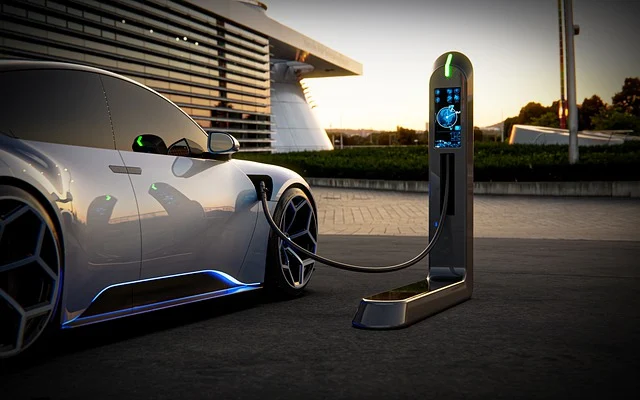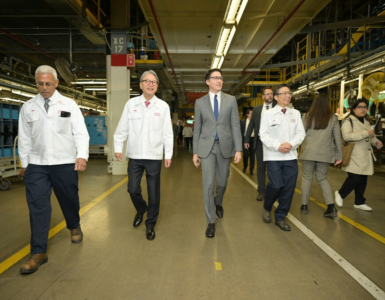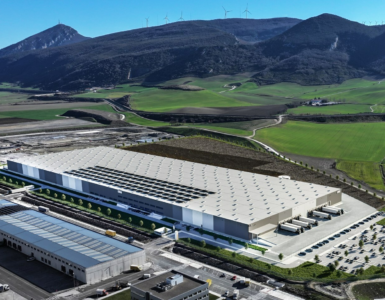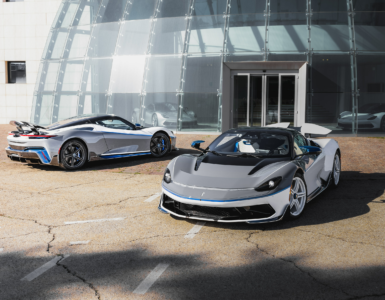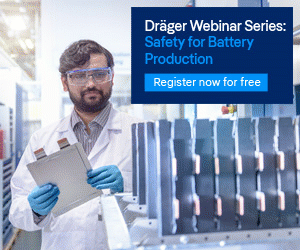Despite Record EV Production Numbers, Shortage of Battery Metals Looms.
USA News Group – Giants of the auto industry have notably began sending senior executives to mingle with mining experts at events such as the BMO Global Metals & Mining Conference signalling an increasing importance to secure materials to make their cars. The reality is that there’s a critical battery metals shortage looming, causing executives from car producers such as Tesla Inc. (NASDAQ:TSLA) (NEO:TSLA) and Ford Motor Company (NYSE:F) to take the matter very seriously. Despite Tesla reporting record Q1 2023 deliveries, Benchmark Minerals projects will require more than 300 new battery metal mines to meet future EV demand. To get there, many battery metals projects continue to be developed, including those from Lithium South Development Corporation (TSXV:LIS) (OTC:LISMF), Albemarle Corporation (NYSE:ALB), and even Berkshire Hathaway Inc. (NYSE:BRK-A) (NYSE:BRK-B).
Lithium South Development Corporation (TSXV:LIS) (OTC:LISMF) recently completed the final drill hole of its resource expansion program at the Hombre Muerto North Lithium Project (HMN Li Project) in Salta Province, Argentina. As its flagship asset, Lithium South’s project already has a solid foundation, with a maiden resource of 0.57 MT Li2CO3 equivalent (M+I) from 2019.
Adrian F. C. Hobkirk, Lithium South’s President and CEO, said:
🔥 What about we co-host a webinar? Let's educate, captivate, and convert the battery economy!
Batteries News is the global go-to online magazine for the battery industry, we can help you host impactful webinars that become a global reference on your topic and are an evergreen source of leads. Click here to request more details
We are pleased to have completed the 2022-2023 resource expansion program at the HMN Li Project.
“We look forward to full results and the delineation of a new lithium resource.”
To date, Lithium South has made significant progress on the HMN Li Project, including completing a Preliminary Economic Assessment (PEA) in April 2019. However, the original PEA assessment was based on only the Tramo claim, which covered 383 hectares of the project’s initial claims. Since then, the company has significantly expanded its land position, which now comprises 5,687 hectares spread across 9 mining concessions. The monitoring wells will provide a preliminary indication of whether the claim block will support one or more shallow pumping wells for potential future lithium production.
The goal of the expansion program is to increase the resource size while moving towards a full Feasibility Study for the HMN Li Project. The property is surrounded by two leading lithium producers, Livent and POSCO, which acquired the property from Galaxy Resources (now Allkem) for US$280 million.
So far throughout this 2023 resource program, Lithium South has received excellent lithium values from all holes completed to date. These included an average of samples of 663 mg/L Li, with a range of 320-752 mg/L Li, and ranging from 569 mg/L Li to 708 mg/L Li in another drill hole. The latest results also include nine packer samples collected between 24 and 189 meters, with a density range of 1.215 to 1.218 g/mL and a conductivity range of 196.3 to 209.5 mS/cm. The goal of the monitoring wells are to provide a preliminary indication of whether the claim block will support one or more shallow pumping wells for potential future lithium production.
To increase the potential of the HMN Li Project, Lithium South has taken steps to investigate the potential for Direct Lithium Extraction (DLE) by providing three 2,000-liter bulk samples of high-quality HMN Li brine for testing. The tests were conducted by three strategic partners: China’s Chemphys Chengdu, Argentina’s Eon Minerals, and California-based Lilac Solutions.
A similar DLE process has also drawn the interest of billionaire Warren Buffett’s Berkshire Hathaway Inc. (NYSE:BRK-A) (NYSE:BRK-B), but in California’s Salton Sea instead of South America’s Lithium Triangle. Through its subsidiary Berkshire Hathaway Energy Renewables (‘BHE Renewables’), the company is planning for 2026 as its goal for producing lithium as a byproduct of existing geothermal energy production in the region.
BHE Renewables already runs a fleet of 10 geothermal plants in the Imperial Valley. After constructing a DLE demonstration plant to assess the viability of lithium extraction, the company plans to go on to potentially build a commercial-scale facility with a projected annual capacity of 90,000 metric tons of lithium.
It’s worth noting, however, that an initial $15M grant from the US Department of Energy was initially awarded to BHE, only to be quietly rescinded just weeks later. After 13 months of negotiations between the company and the government, talks stalled as Berkshire sought control over patents, changes to technology, and whether it could one day sell the lithium business, even after the government helped build it, as reported by Reuters.
Having domestic supplies for its battery materials is crucial to US-based EV manufacturers such as Tesla Inc. (NASDAQ:TSLA) (NEO:TLSLA) and Ford Motor Company (NYSE:F).
So much so that Tesla has been rumored to be interested in investing in its own lithium mining company. However, CEO Elon Musk has recently tamped down that speculation stating instead that he sees iron-based batteries becoming more important to the future of EVs. According to Musk, the “limiting factor” is in refining lithium, not actually mining it. Thus Tesla has already broken ground on its own proposed lithium refinery in Corpus Christi, TX, with the goal of starting output within a year.
Despite losing $2.1 billion selling EVs in 2022, Ford Motor Company (NYSE:F) is doing its part to bring its costs down, starting with opening a lithium-iron-phosphate battery plant in Michigan that could bring the high costs of EVs down. Using a second battery type lets Ford boost production of EVs quicker, and lowers the cost of batteries thus making EVs more affordable to more buyers, according to Lisa Drake, VP of EV industrialization for Ford Model E, its EV unit.
It was in July 2022 that Ford announced it was going to buy lithium from ioneer for its US EV battery plant. The deal was one of the first binding agreements between a U.S. lithium company and U.S. automaker, after Washington pushed more incentives to domestically source metals for the green energy transition and curb reliance on China.
“Helping unlock lithium in the U.S. will help us support localized production of battery cells going forward,” said Drake.
Under the terms of the deal, ioneer will supply 7,000 tonnes of lithium carbonate annually for five years to BlueOvalSK, Ford’s battery joint venture with SK Innovation, which has a Kentucky factory.
READ the latest Batteries News shaping the battery market
Despite Record EV Production Numbers, Shortage of Battery Metals Looms. source

